第55章
Question of the proper definition of the wealth of a state -Reason given by the French economists for considering all manufacturers as unproductive labourers, not the true reason -The labour of artificers and manufacturers sufficiently productive to individuals, though not to the state - A remarkable passage in Dr Price's two volumes of Observations - Error of Dr Price in attributing the happiness and rapid population of America, chiefly, to its peculiar state of civilization - No advantage can be expected from shutting our eyes to the difficulties in the way to the improvement of society.
A QUESTION seems naturally to arise here whether the exchangeable value of the annual produce of the land and labour be the proper definition of the wealth of a country, or whether the gross produce of the land, according to the French economists, may not be a more accurate definition. Certain it is that every increase of wealth, according to the definition of the economists, will be an increase of the funds for the maintenance of labour, and consequently will always tend to ameliorate the condition of the labouring poor, though an increase of wealth, according to Dr Adam Smith's definition, will by no means invariably have the same tendency. And yet it may not follow from this consideration that Dr Adam Smith's definition is not just. It seems in many respects improper to exclude the clothing and lodging of a whole people from any part of their revenue. Much of it may, indeed, be of very trivial and unimportant value in comparison with the food of the country, yet still it may be fairly considered as a part of its revenue; and, therefore, the only point in which I should differ from Dr Adam Smith is where he seems to consider every increase of the revenue or stock of a society as an increase of the funds for the maintenance of labour, and consequently as tending always to ameliorate the condition of the poor.
The fine silks and cottons, the laces, and other ornamental luxuries of a rich country, may contribute very considerably to augment the exchangeable value of its annual produce; yet they contribute but in a very small degree to augment the mass of happiness in the society, and it appears to me that it is with some view to the real utility of the produce that we ought to estimate the productiveness or unproductiveness of different sorts of labour. The French economists consider all labour employed in manufactures as unproductive. Comparing it with the labour employed upon land, I should be perfectly disposed to agree with them, but not exactly for the reasons which they give.
They say that labour employed upon land is productive because the produce, over and above completely paying the labourer and the farmer, affords a clear rent to the landlord, and that the labour employed upon a piece of lace is unproductive because it merely replaces the provisions that the workman had consumed, and the stock of his employer, without affording any clear rent whatever.
But supposing the value of the wrought lace to be such as that, besides paying in the most complete manner the workman and his employer, it could afford a clear rent to a third person, it appears to me that, in comparison with the labour employed upon land, it would be still as unproductive as ever. Though, according to the reasoning used by the French economists, the man employed in the manufacture of lace would, in this case, seem to be a productive labourer. Yet according to their definition of the wealth of a state, he ought not to be considered in that light. He will have added nothing to the gross produce of the land: he has consumed a portion of this gross produce, and has left a bit of lace in return; and though he may sell this bit of lace for three times the quantity of provisions that he consumed whilst he was making it, and thus be a very productive labourer with regard to himself, yet he cannot be considered as having added by his labour to any essential part of the riches of the state. The clear rent, therefore, that a certain produce can afford, after paying the expenses of procuring it, does not appear to be the sole criterion, by which to judge of the productiveness or unproductiveness to a state of any particular species of labour.
Suppose that two hundred thousand men, who are now employed in producing manufactures that only tend to gratify the vanity of a few rich people, were to be employed upon some barren and uncultivated lands, and to produce only half the quantity of food that they themselves consumed; they would be still more productive labourers with regard to the state than they were before, though their labour, so far from affording a rent to a third person, would but half replace the provisions used in obtaining the produce. In their former employment they consumed a certain portion of the food of the country and left in return some silks and laces. In their latter employment they consumed the same quantity of food and left in return provision for a hundred thousand men. There can be little doubt which of the two legacies would be the most really beneficial to the country, and it will, I think, be allowed that the wealth which supported the two hundred thousand men while they were producing silks and laces would have been more usefully employed in supporting them while they were producing the additional quantity of food.